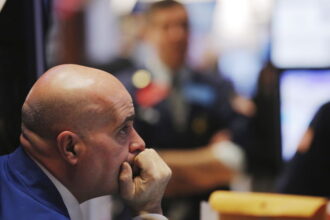By Laura Sanicola
(Reuters) – Oil prices dipped in early Asian trade on Tuesday after falling to a three-week low in the previous session on a strengthening U.S. dollar and traders taking some money off the table from the last quarter’s chunky gains.
futures for December delivery fell 34 cents, or 0.4%, to $90.37 a barrel by 0002 GMT.
U.S. West Texas Intermediate crude (WTI), declined 29 cents, or 0.3%, to $88.53 per barrel.
Analysts said some traders took profits after crude prices rose nearly 30% to 10-month highs in the third quarter.
Before the crude price pullback that started on Sept. 28, U.S. speculators boosted their net long futures and options positions on the New York Mercantile and Intercontinental Exchanges to the highest since May 2022, according to the U.S. Commodity Futures Trading Commission.
On Monday, the U.S. dollar rose to a 10-month high against a basket of major peers after the U.S. government avoided a partial shutdown and economic data fuelled expectations the Federal Reserve will keep rates higher for longer, which could slow economic growth.
Investors in Asia are also awaiting the Reserve Bank of Australia’s latest policy decision and guidance on Tuesday.
Australia’s central bank is expected to keep its key interest rate steady at 4.10% on Tuesday, according to a Reuters poll, but one more hike is on the cards with a 4.35% peak seen by the end of this year as inflation remains above target.
Higher interest rates along with a stronger dollar, which makes oil more expensive for holders of other currencies, could dent oil demand.
In Europe, manufacturing data showed the euro zone, Germany and Britain remained mired in a downturn in September. On the brighter side, an official survey of Chinese manufacturing showed activity expanding for the first time in six months.
Pumping more crude supply into the system, Turkey’s energy minister said the country will restart operations this week on a pipeline from Iraq that has been suspended for about six months.
OPEC+, the Organization of the Petroleum Exporting Countries (OPEC) plus Russia and other allies, will meet on Wednesday but is unlikely to tweak its current oil output policy.
A Reuters survey showed OPEC oil output rose for a second straight month in September despite cuts by Saudi Arabia.
Read the full article here










